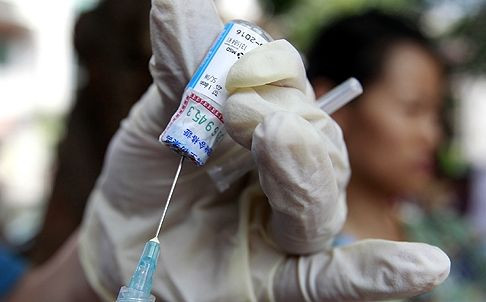Rabies Kills 24,000 In Africa Each Year; Are Costly Vaccines To Blame?

Rabies experts gathered at a news conference in Senegal's capital, Dakar, to discuss the growing mortality rate surrounding the disease. Around 24,000 people in Africa die after contracting rabies each year, and doctors believe expensive vaccines are at the root of this epidemic.
"This is the disease of the poorest of the poor who can't afford the vaccine," Herve Bourhy, a doctor at France's Pasteur Institute, said at a news conference.
According to the World Health Organization, rabies is present in over 150 countries; however, 95 percent of all human deaths occur in Asia and Africa. Fifteen-million people around the world receive post-exposure vaccination, preventing hundreds of thousands of deaths a year.
This disease is spread through animal to human transmission and can come from either a domestic or wild animal. The majority of rabies-related deaths are linked to dogs, which is why experts also emphasized tying up dogs as a preventative measure.
To help curb the number of animals carrying rabies, African health officials announced a nationwide campaign to vaccinate all dogs and cats that will begin on Friday. Pet owners can have their animals vaccinated for $1.
Rabies-related deaths in the United States have declined from over 100 each year at the turn of the century to one or two a year by the 1990s, according to the Centers for Disease Control and Prevention. Modern prophylaxis has proven nearly 100 percent successful in fighting the rabies infection.
The average person requires four to five vaccinations to become immune to rabies at €10 ($13.57) per injection, Reuters reports. Besides immunization, thoroughly cleaning a wound is seen as the only other safeguard against the disease.



























